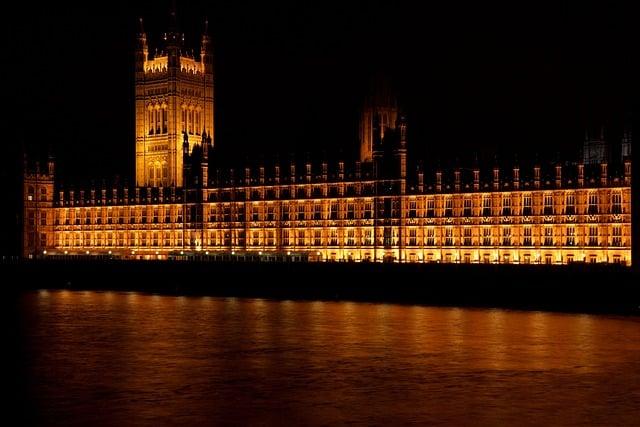In a move that has raised eyebrows and concern within the international community, the Swiss government has officially rejected a crucial ruling from the European Court of Human Rights (ECHR) regarding climate action.This decision comes amidst growing urgency for nations to prioritize environmental protections and uphold human rights in the face of escalating climate crises.The ECHR’s ruling, which underscored the obligation of states to mitigate climate change impacts on their citizens, has been met with a surprising resistance from Switzerland, a country that has long positioned itself as a leader in both human rights and environmental governance. The refusal not only highlights a meaningful rift between esteemed international legal frameworks and national policy but also poses critical questions about Switzerland’s commitment to its environmental responsibilities. In this article, we delve into the implications of this decision, the legal context surrounding it, and the reactions from both domestic and international stakeholders concerned about the future of climate justice and human rights.
The Implications of Switzerlands Rejection of ECHR climate Ruling

Switzerland’s decision to reject the recent ruling by the European Court of Human Rights (ECHR) that mandated stronger climate action poses significant repercussions not only for the national government but also for its international standing. By distancing itself from ECHR directives, Switzerland risks alienating itself from broader European environmental initiatives.This rejection contradicts the increasing global consensus on the urgent need for climate action and places Switzerland at the mercy of its own subjective interpretation of environmental duty.The implications of this stance could lead to increased scrutiny and criticism from both international bodies and its own citizens, demanding a coherent and progressive climate policy.
moreover, this refusal to adhere to the ECHR’s ruling can possibly hinder Switzerland’s collaborative efforts in international climate agreements. Key implications include:
- Isolation from European Allies: Switzerland may find itself isolated from EU climate policies and cooperative frameworks.
- Legal challenges: The government could face legal challenges from environmental groups advocating for compliance with human rights and climate protections.
- Public Pressure: Citizens may mobilize against the government’s decision, leading to social unrest and calls for accountability.
- Economic consequences: Non-compliance could result in repercussions from international investors who prioritize sustainability.
Understanding the Human Rights Framework in Climate Policy

At the heart of the ongoing debate surrounding climate policy is the critical intersection between human rights and environmental safeguard measures. The European Court of Human Rights (ECHR) has emphasized that states are obligated to protect the rights of individuals from environmental harm, underscoring the notion that a healthy environment is not merely a luxury, but a basic human right. By rejecting the ECHR’s climate ruling, the Swiss government risks undermining these essential rights, potentially setting a hazardous precedent that could embolden other nations to disregard international commitments and the moral imperatives associated with climate justice.
In understanding the implications of human rights within climate policy, it becomes essential to recognize the specific obligations that states like Switzerland are bound to uphold. These obligations include:
- The right to life: Governments must ensure that climate-related actions do not threaten the lives and livelihoods of their citizens.
- The right to health: Policies must address the health impacts of climate change, especially for vulnerable populations.
- The right to information: Clarity regarding environmental policies and their effects on communities is crucial.
- The right to participation: Engaging communities in decision-making processes ensures that diverse voices are heard.
A refusal to adhere to international rulings could shift the balance of accountability, leaving individuals and communities exposed to the harsh reality of climate change without the protections afforded through human rights law. As the global community increasingly prioritizes climate action, the imperative for countries to align their environmental policies with human rights standards has never been clearer.
The Swiss Governments Position: Legal and Political Ramifications

The recent decision by the Swiss government to reject the European Court of Human Rights’ ruling on climate change has sparked significant debate regarding both legal and political ramifications. This move raises questions about Switzerland’s commitment to international treaties and norms. Critics argue that by not complying with the Court’s directives, Switzerland risks undermining its stature as a leader in human rights and environmental protection. Such a stance could invite scrutiny from global bodies and influence local public opinion, placing the government under pressure from environmental activists and citizens alike.
Additionally, the implications may extend to Switzerland’s relationships with other European nations and international organizations. Key points of concern include:
- Diplomatic Relations: Strained ties with EU countries that prioritize adherence to international legal frameworks.
- Economic Impact: Potential repercussions for Swiss businesses operating internationally, which may face increased scrutiny over their environmental practices.
- Legal Precedent: Setting a troubling precedent for other nations that might seek to follow Switzerland’s example.
This situation compels the government to navigate a complex landscape where legal obligations intersect with political ideologies, potentially reshaping the future of Switzerland’s environmental policy and its role on the global stage.
Comparative Analysis: How Other European Nations Responded

The reactions of other European nations to climate rulings from the European Court of Human Rights (ECHR) offer valuable insights into how the Swiss government’s refusal to except such a ruling stands out. Countries like the Netherlands, France, and Germany have responded with a commitment to adapt their policies in accordance with the court’s guidance. Notably, the Dutch government initiated significant reforms following a landmark ruling mandating it to cut greenhouse gas emissions. This led to a slew of legislative changes aimed not only at compliance but also at demonstrating leadership in climate policy. in stark contrast,Switzerland’s hesitance reflects a growing isolation among its peers,raising questions about the nation’s climate commitment on the global stage.
| Country | response to ECHR Rulings | Impact on Policy |
|---|---|---|
| Netherlands | Implemented emission reduction measures | Established stricter laws and regulations |
| France | Boosted renewable energy investments | Strengthened climate action framework |
| Germany | Revised climate targets in line with rulings | Enhanced transparency and accountability |
The divergence in approaches raises crucial implications for international collaboration on climate issues. While neighboring states demonstrate a willingness to embrace judicial verdicts and incorporate them into their national strategies, Switzerland’s dismissal of the ECHR ruling may undermine its credibility within the european community. This could lead to heightened scrutiny over Switzerland’s climate policies and its overall commitment to sustainability. The contrast is telling: nations responding proactively invite further discussion and cooperation, while refusal to engage risks isolation and diminished influence in future climate negotiations.
Recommendations for a Collaborative Approach to Climate Justice

In the wake of the European Court of Human Rights’ ruling on climate responsibilities,it is essential for nations to adopt a coordinated strategy that enhances global equity in environmental justice. A collaborative response could foster collective action in mitigating climate change impacts, thus empowering affected communities. Key elements for such an approach include:
- Engagement with marginalized communities: Actively involve Indigenous and low-income populations in decision-making processes, ensuring their voices are integral to policy development.
- Intergovernmental cooperation: Strengthen alliances between governments to share resources,knowledge,and best practices,promoting innovative climate solutions.
- Legal frameworks for accountability: Establish clear legal mechanisms that hold states accountable for their environmental commitments and violations.
- Public awareness and education: Foster a culture of environmental stewardship through comprehensive educational programs that highlight the importance of climate justice.
Moreover, developing international treaties focused on climate justice can provide crucial frameworks for collaboration. Countries should consider a structured platform that facilitates dialogue and joint initiatives among stakeholders. A proposed framework could encompass:
| Focus Area | Objectives |
|---|---|
| Climate Resilience | Building community capacity to adapt to climate impacts. |
| Financial Mechanisms | Encouraging investment in renewable energy projects by redirecting financial flows. |
| Data Sharing | Creating platforms for sharing scientific research and environmental data. |
| Youth Engagement | Empowering young leaders to advocate for climate justice initiatives. |
The Role of Civil Society in Shaping Climate Accountability in Switzerland

The refusal of the Swiss government to comply with the European Court of Human Rights’ climate ruling underscores a pivotal moment in the ongoing dialogue between state policies and civil society activism.In Switzerland, civil society organizations play a crucial role in advocating for climate accountability, demanding transparency and action from the government. These organizations mobilize public opinion and bring awareness to the urgency of climate change,thereby pressuring officials to adhere to international rulings. Their efforts frequently enough manifest through:
- Public Campaigns: Grassroots initiatives that engage citizens on climate issues.
- Legal Action: Lawsuits aimed at holding the government accountable for environmental impacts.
- Research & Advocacy: Independent studies that emphasize the scientific basis for climate action.
The impact of these civil society groups in Switzerland extends beyond activism; they are instrumental in creating frameworks for accountability. By fostering a participatory environment where citizens can voice their concerns, these organizations contribute to a broader understanding of the ethical implications associated with climate inaction. The following table illustrates the key contributions of civil society to climate accountability:
| Contribution | Description |
|---|---|
| Awareness Raising | Educating the public about climate issues and their rights. |
| policy advocacy | Influencing government policies to prioritize sustainability and accountability. |
| Community Engagement | Encouraging local actions towards climate resilience. |
In Summary
the Swiss government’s decision to reject the ruling of the European Court of Human Rights regarding climate obligations raises significant questions about its commitment to environmental justice and international legal standards. As the global community grapples with the urgent realities of climate change, Switzerland’s stance may not only reflect an internal struggle but also jeopardize its reputation as a leader in human rights and sustainability. This contentious rejection could have long-lasting implications, inviting scrutiny from both domestic constituents and the international community. As the dialogue surrounding climate accountability continues to evolve, Switzerland stands at a crossroads, tasked with reconciling its national interests with the pressing demands of a planet in crisis.The world will be watching closely as this situation unfolds, highlighting the critical intersection of law, environment, and human rights on the global stage.











